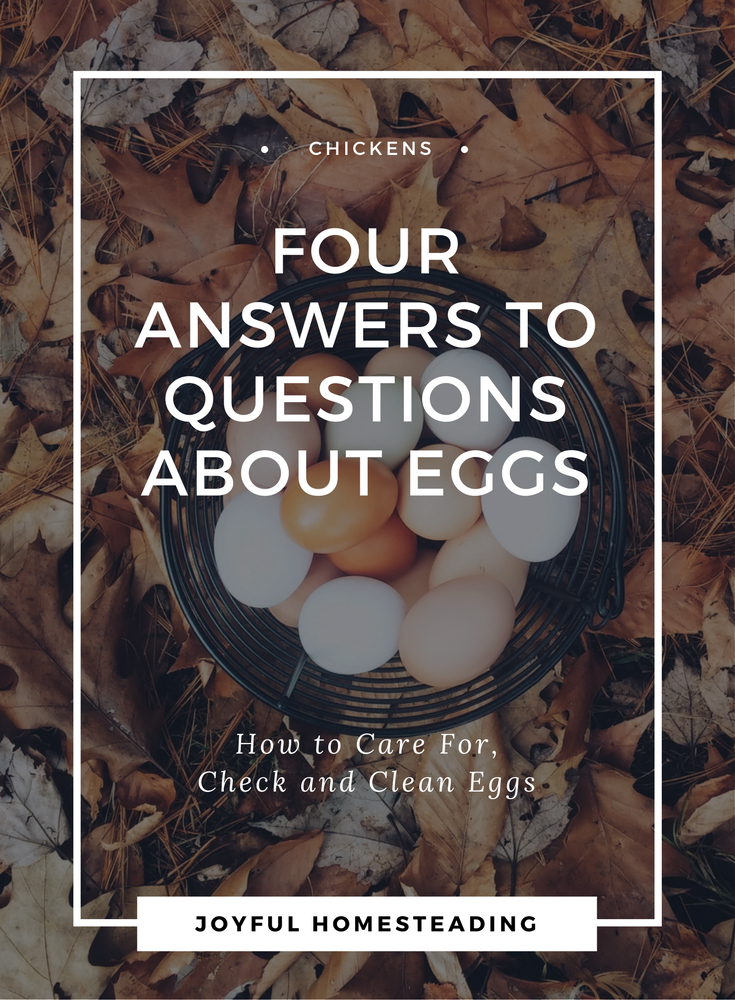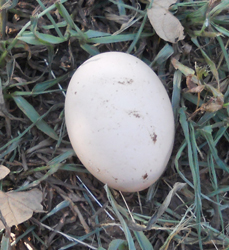Questions About Chicken Eggs
Questions about chicken eggs are bound to come up once you start the wonderful pursuit of keeping chickens. A flock of these wonderful birds are an absolute must for any homesteader wanting to pursue self-reliant living. Whether you live in the city, or you have an acre or two, raising chickens is a low-cost, low-effort way to raise your own healthy food.

Still, although they are easy to keep, chickens will need some care, and
issues will arise from time to time. Most particularly, you will have
questions about chicken eggs, including cleaning chicken eggs, storing
chicken eggs and chicken egg candling. Here are four answers to questions you may have about eggs.
First of the Questions About Chicken Eggs:
How Do You Clean Them, and When?
By keeping your chicken nests clean and lined with clean litter, and by collecting eggs two to three times a day, you reduce the chance of having dirty or cracked eggs.
Even so, messes happen, and you will sometimes wind up with dirty eggs. If the egg is slightly dirty, brush or rub off the dirt with fine grain sandpaper.

If the egg is seriously dirty, discard it. But if the egg is only moderately soiled, rinse it in warm water that is slightly warmer than the shell and then sanitize it by dipping it in a solution of water and chlorine bleach. Freshly laid chicken eggs have a light coating - called a bloom - which preserves the freshness of the eggs.
Once your eggs have been rinsed in water, the bloom will be gone and the eggs won't last as long, so be sure to eat these first.
Storing Chicken Eggs
Other questions about chicken eggs have to do with properly storing chicken eggs and how long they last. Store your eggs in closed cartons - the open ones are great for admiring your eggs, but expose your eggs to too much air. Set your eggs with the pointed ends downward.
The eggs need to be refrigerated as soon as possible. Each day an egg sits out at room temperature ages it the same amount of time as one week in the refrigerator, so it's crucial to get those eggs chillin' as soon as possible.
What most people don't realize is the eggs you buy in the store are already about one month old by the time you buy them. A freshly laid egg that is collected the same day and stored in a closed egg carton in the refrigerator will last for up to five weeks. If you want your eggs to last longer, wrap that closed carton in a plastic bag to prevent moisture loss, and your eggs should last up to two months.
You can also freeze eggs, although you will need to remove the shells first, otherwise they'll burst. Add sugar or salt to keep the eggs from getting gummy and freeze them in an ice cube tray. After the eggs are frozen, remove them from the ice cube trays and then wrap them either in heavy freezer paper or in freezer bags. Better still, vacuum seal them.
Chicken Egg Candling
Do you have questions about chicken eggs, and whether they are fresh? Chicken egg candling is one way to determine if your eggs are fresh. Hold the egg up in front of a bright light, such as a flashlight. The pointed end should be facing down, with the rounder end at the top.
Give the egg a sharp twist and look at the contents inside. If you can't see the yolk clearly, then that means the egg is likely fresh. The older an egg is, the more visible the yolk will be.
Another way to test the freshness of eggs is the float test. The older an egg is, the more the membranes within the egg shrink and the greater the pocket of air within the egg, and the more it will float.
So you can test your egg's freshness by placing the egg in a glass of water. If it is very fresh, it will lay on the bottom of the glass. At one week of age, the round end of the egg will tilt up. A stale egg (that is two or three weeks old) will stand straight up, and a very old egg (one you don't want to eat) will float.
Help! The Shells Are Thin
As your hens age, the eggs they lay will naturally become thinner. But just as we can offset the effects of age and illness through good nutrition, you should also supplement your hens' diet to strengthen their shells. Provide your hens with ground oyster shells in a separate feeder to make sure they get sufficient calcium in their diet.










New! Comments
Have your say about what you just read! Leave me a comment in the box below.